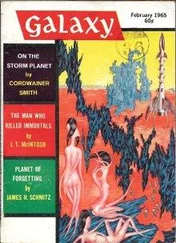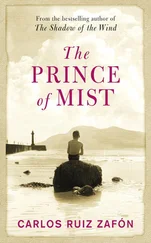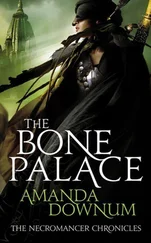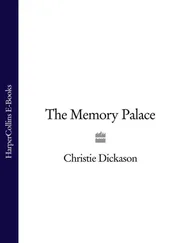Carlos Zafon - The Midnight Palace
Здесь есть возможность читать онлайн «Carlos Zafon - The Midnight Palace» весь текст электронной книги совершенно бесплатно (целиком полную версию без сокращений). В некоторых случаях можно слушать аудио, скачать через торрент в формате fb2 и присутствует краткое содержание. Жанр: Триллер, на английском языке. Описание произведения, (предисловие) а так же отзывы посетителей доступны на портале библиотеки ЛибКат.
- Название:The Midnight Palace
- Автор:
- Жанр:
- Год:неизвестен
- ISBN:нет данных
- Рейтинг книги:4 / 5. Голосов: 1
-
Избранное:Добавить в избранное
- Отзывы:
-
Ваша оценка:
- 80
- 1
- 2
- 3
- 4
- 5
The Midnight Palace: краткое содержание, описание и аннотация
Предлагаем к чтению аннотацию, описание, краткое содержание или предисловие (зависит от того, что написал сам автор книги «The Midnight Palace»). Если вы не нашли необходимую информацию о книге — напишите в комментариях, мы постараемся отыскать её.
The Midnight Palace — читать онлайн бесплатно полную книгу (весь текст) целиком
Ниже представлен текст книги, разбитый по страницам. Система сохранения места последней прочитанной страницы, позволяет с удобством читать онлайн бесплатно книгу «The Midnight Palace», без необходимости каждый раз заново искать на чём Вы остановились. Поставьте закладку, и сможете в любой момент перейти на страницу, на которой закончили чтение.
Интервал:
Закладка:
‘Indeed,’ Carter agreed. He stood up, ready to see the visitor out.
‘All the more so in an empire in which decadence is an art form and Calcutta its main showcase,’ Jawahal added.
Carter nodded his head, not quite sure what he was agreeing with.
‘I’m sorry I’ve wasted your time, Mr Carter,’ concluded Jawahal.
‘On the contrary,’ replied Carter. ‘I’m just sorry I haven’t been of any assistance. In such circumstances we must all do what we can to help.’
‘Absolutely,’ Jawahal agreed, also standing up. ‘Once again, I appreciate your kindness. I just wanted to ask you one more question.’
‘With pleasure,’ answered Carter, although he couldn’t wait to get rid of this man.
Jawahal smiled maliciously, as if he’d read Carter’s thoughts.
‘At what age do the children you take in leave this place, Mr Carter?’
Carter couldn’t hide his surprise.
‘I hope you don’t think I’m being tactless,’ Jawahal added hurriedly. ‘If that is the case, please ignore my question. I’m just curious.’
‘No, not at all. It’s no secret. The boarders at St Patrick’s remain under our roof until the day they turn sixteen. That’s when the guardianship period ends. At that point they are considered to be adults, or so the law says, ready to take charge of their own lives. As you can see, this is a privileged institution.’
Jawahal listened attentively and appeared to be considering the matter.
‘I imagine it must be very painful for you to see them leave after having cared for them all those years,’ Jawahal observed. ‘In a way, you’re like a father to all these children.’
‘It’s my job,’ Carter lied.
‘Of course. But – if you don’t mind my asking – how do you know the real age of a child who has no parents or family? It’s a technicality, I suppose …’
‘The age of our boarders is set from the day the child is taken in, or else the institution makes an approximate calculation,’ Carter explained, feeling uncomfortable about discussing the orphanage’s procedures with the stranger.
‘Which makes you a little god, Mr Carter.’
‘That is a view I do not share,’ Carter replied dryly. Jawahal relished the displeasure on Carter’s face.
‘Forgive my audacity, Mr Carter,’ Jawahal replied. ‘It was a pleasure to meet you. I may visit in the future and make a donation to your noble institution. Perhaps I’ll return in sixteen years’ time; that way I’ll be able to meet the youngsters who become part of your large family today …’
‘It will be a pleasure to receive you then, if that is your wish,’ said Carter, leading the stranger to the door. ‘It looks like the rain has got worse. Maybe you’d prefer to wait until it dies down?’
The man turned towards Carter and his pupils glowed like two black pearls. He seemed to have been weighing up every gesture, every expression from the moment he’d entered the office, sniffing out any cracks in the story and analysing every word. Carter regretted extending his offer of hospitality. At that precise moment the only thing Carter wanted was to see the back of this individual. He didn’t care if a hurricane was laying waste to the city.
‘The rain will stop soon, Mr Carter,’ Jawahal replied. ‘Thanks all the same.’
Right on cue, Vendela was waiting in the corridor as the meeting ended, and she escorted the visitor to the exit. From the window of his office Carter watched the black figure setting off into the rain then disappearing among the narrow streets at the foot of the hill. Carter stood there for a while, looking out of his window, his eyes fixed on the Raj Bhawan, the seat of the British government. A few minutes later, just as Jawahal had predicted, the rain stopped.
Thomas Carter poured himself another cup of tea and sat in his armchair gazing out at the city. He had grown up in a place similar to the home he now managed, in Liverpool. Within the walls of that institution he had learned three things that would always serve him well: not to overvalue material comforts, to appreciate the classics and, last but not least, to recognise a liar from a mile away.
He took a leisurely sip of his tea and, in view of the fact that Calcutta could still surprise him, decided to start celebrating his fiftieth birthday. He walked over to a glass cabinet and took out the box of cigars he reserved for special occasions. Striking a match, he lit the valuable item with due calm and ceremony. Then, putting the flame to good use, he pulled Aryami Bose’s letter out of the drawer and set fire to it. While the parchment turned to ashes on a small tray with St Patrick’s initials engraved on it, Carter savoured the cigar and, in honour of Benjamin Franklin, one of his childhood heroes, decided that their new tenant would be called Ben, and that he personally would put all his energy into making sure the orphanage provided the boy with the family fate had stolen from him.
B efore I continue with my story and start describing the events that took place sixteen years later, I must take a brief moment to introduce some of its protagonists. Of course, while all of this was taking place in the streets of Calcutta, some of us had not yet been born and others were only a few days old. Yet we had one thing in common, a circumstance that would bring us together under the roof of St Patrick’s: none of us had a family or a home .
We learned to survive without either of those things. Better still, we invented our own family and created our home. It was a family and a home we had chosen freely, and neither lies nor chance had any place there. The only father the seven of us ever knew was Mr Thomas Carter, with his speeches about the wisdom to be found in the pages of Dante and Virgil; and our only mother was the city of Calcutta, whose mysteries were concealed in the streets that lay beneath the stars of the Bengali Peninsula .
The club we invented had a colourful name, the true origin of which was known only to Ben. He had christened the club at whim, although some of us had a sneaking suspicion that he’d borrowed the word from the old mail-order catalogue of some Bombay importer. Be that as it may, the Chowbar Society was set up at some point in our lives, after which the orphanage games seemed dull in comparison. By then we were cunning enough to slip out of the building in the small hours of the night, long after the venerable Vendela’s curfew, and make straight for our society’s headquarters – the top secret and supposedly haunted house which for decades had stood abandoned on the corner of Cotton Street and Brabourne Road, in the middle of the Black Town, just a few streets away from the Hooghly River .
I have to admit that the ramshackle house we proudly called the Midnight Palace (in consideration of the hour when we held our meetings) was never really haunted. The rumours about its supernatural powers arose because of our subterfuge. One of our founding members, Siraj, a full-time asthmatic and learned expert on Calcutta’s tales of ghosts, apparitions and curses, hatched a convincingly sinister legend about an alleged former resident. This helped keep our secret hideaway free of intruders .
The story, in short, was about an old tradesman who floated through the house wrapped in a white cloak. He had blazing red eyes and long wolfish fangs that rested over his lips, and he hungered after unsuspecting curious souls. The bit about the eyes and the teeth was, of course, Ben’s contribution, as he loved to concoct plots so gruesome they left Mr Carter’s classics – Sophocles and the gory Homer included – in the dust .
Despite the humorous echoes of its name, the Chowbar Society was as select and strict as any of the clubs that filled the Edwardian buildings of central Calcutta, emulating their London namesakes; their elegant lounges, where members could vegetate, brandy in hand, were the birthright of the British male elite. Our surroundings may have been less splendid, but our aim was far nobler .
Читать дальшеИнтервал:
Закладка:
Похожие книги на «The Midnight Palace»
Представляем Вашему вниманию похожие книги на «The Midnight Palace» списком для выбора. Мы отобрали схожую по названию и смыслу литературу в надежде предоставить читателям больше вариантов отыскать новые, интересные, ещё непрочитанные произведения.
Обсуждение, отзывы о книге «The Midnight Palace» и просто собственные мнения читателей. Оставьте ваши комментарии, напишите, что Вы думаете о произведении, его смысле или главных героях. Укажите что конкретно понравилось, а что нет, и почему Вы так считаете.












